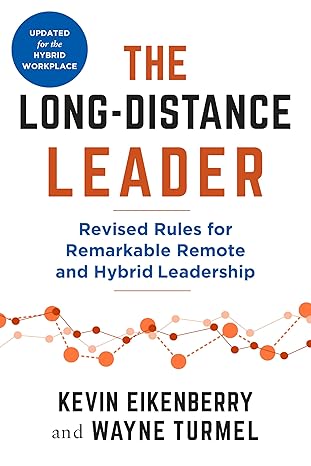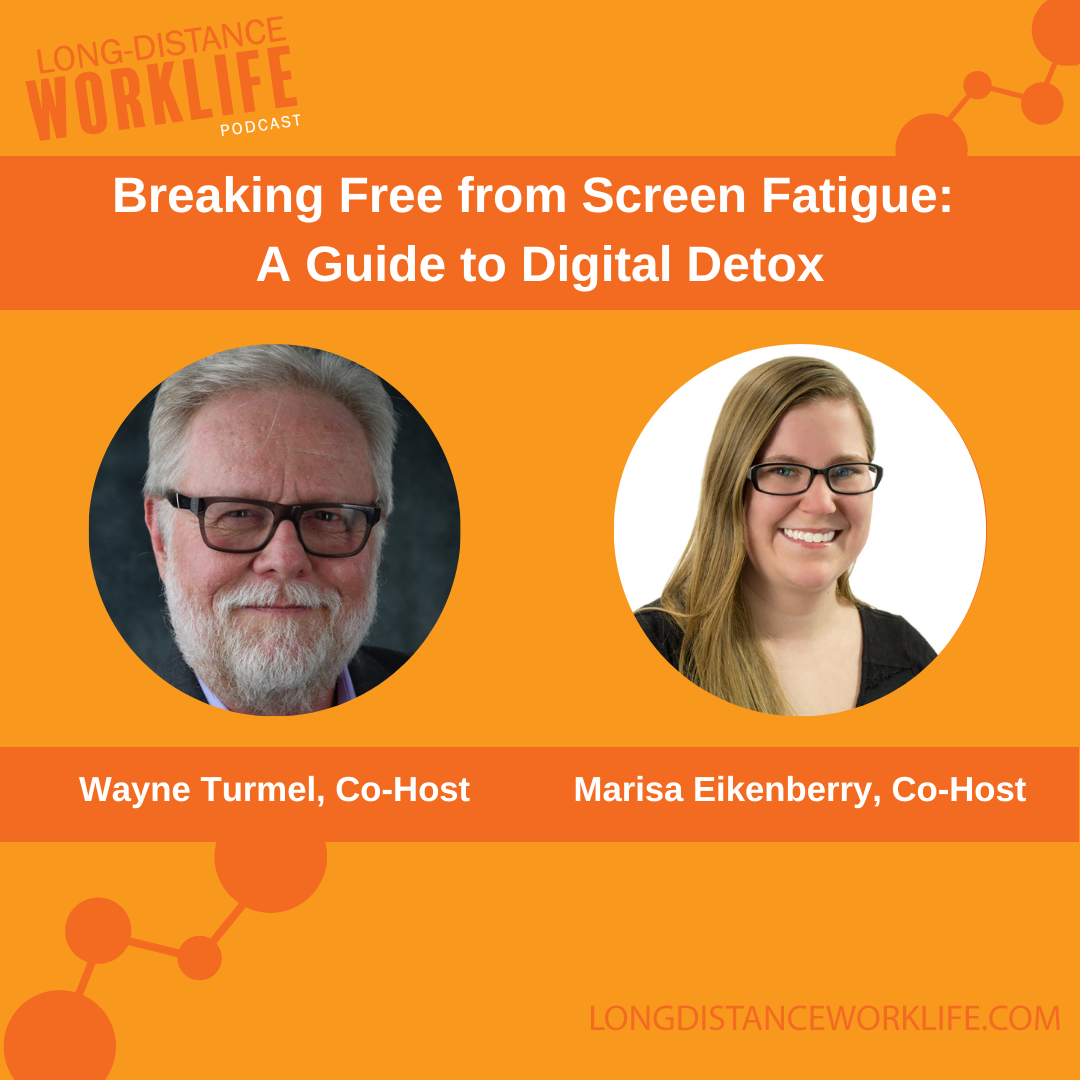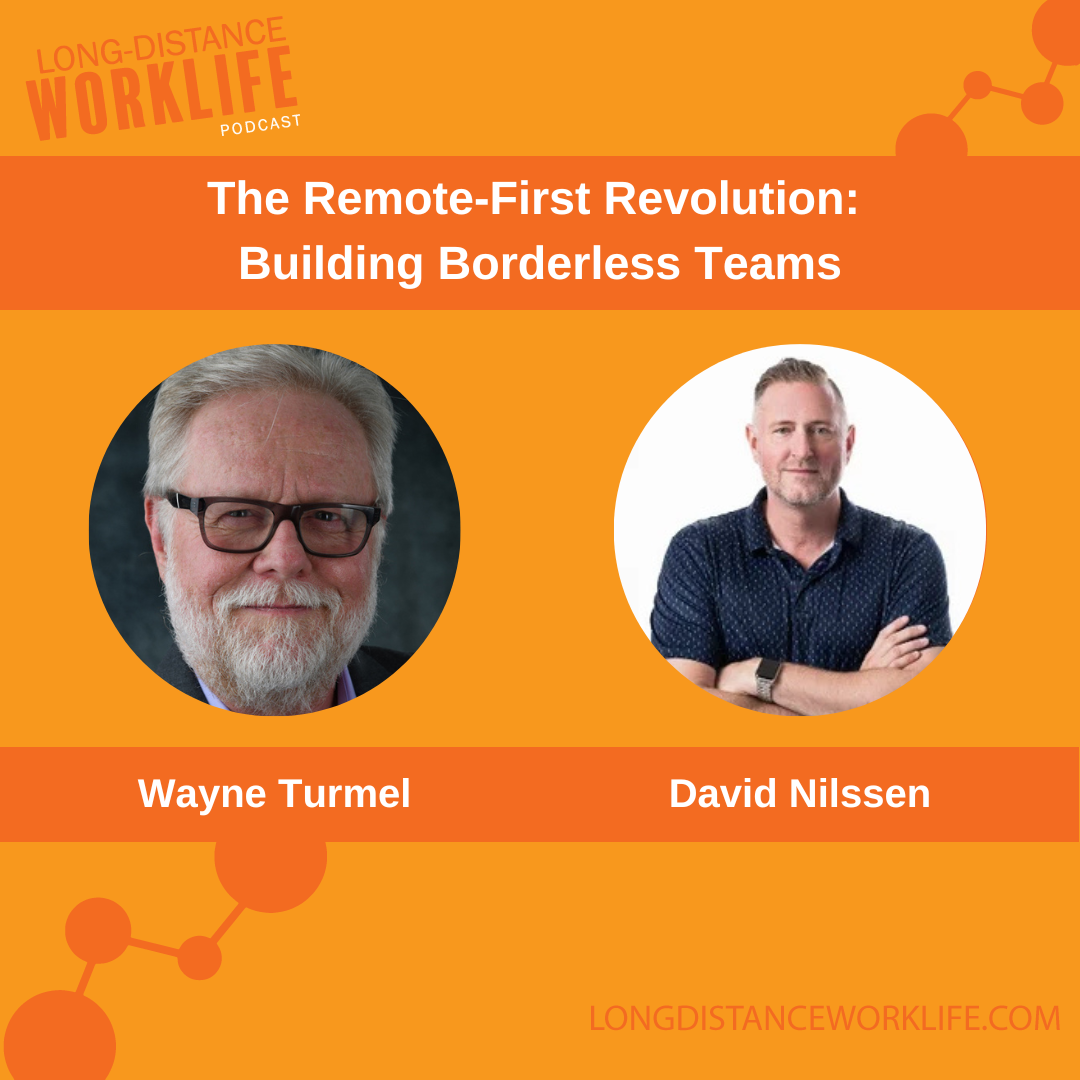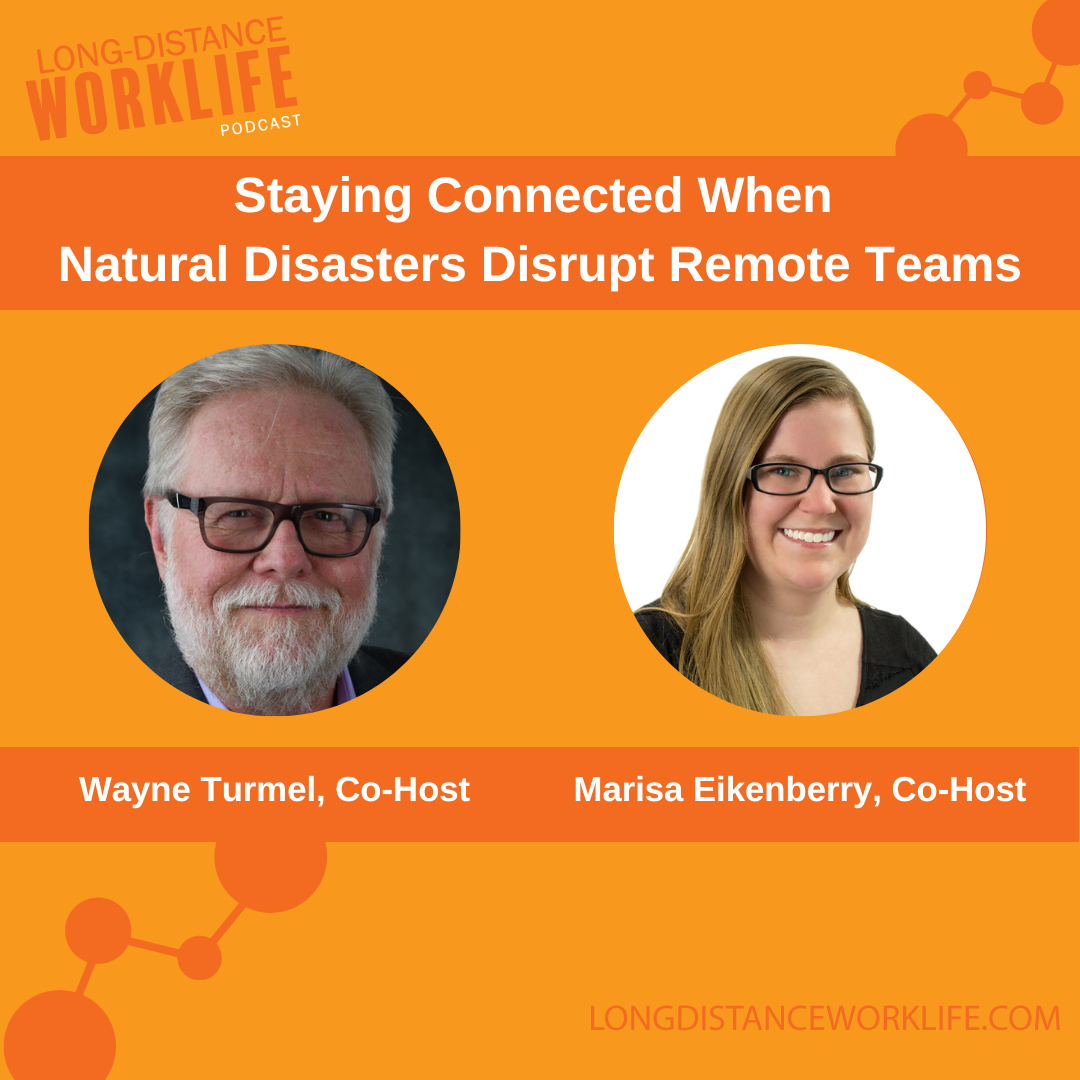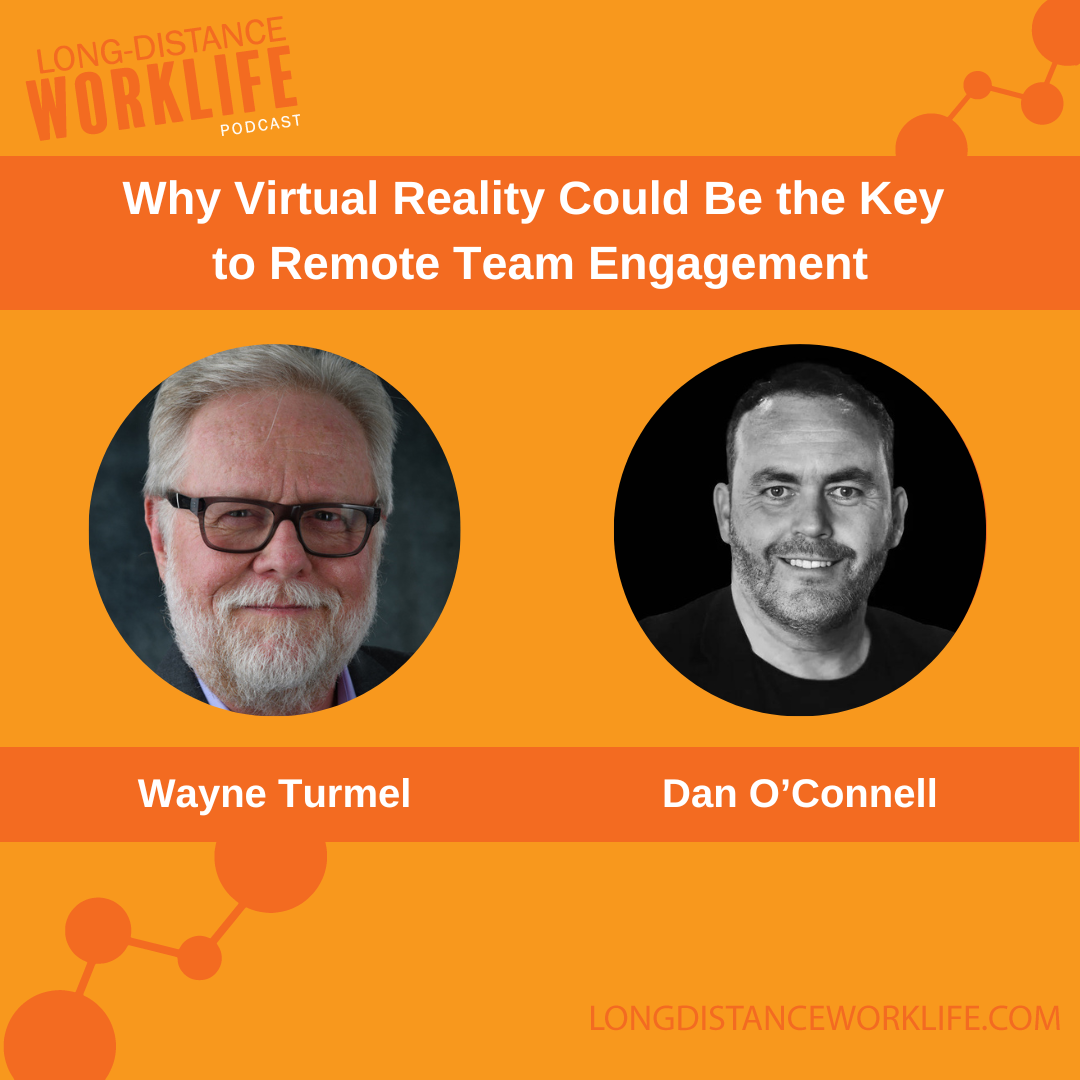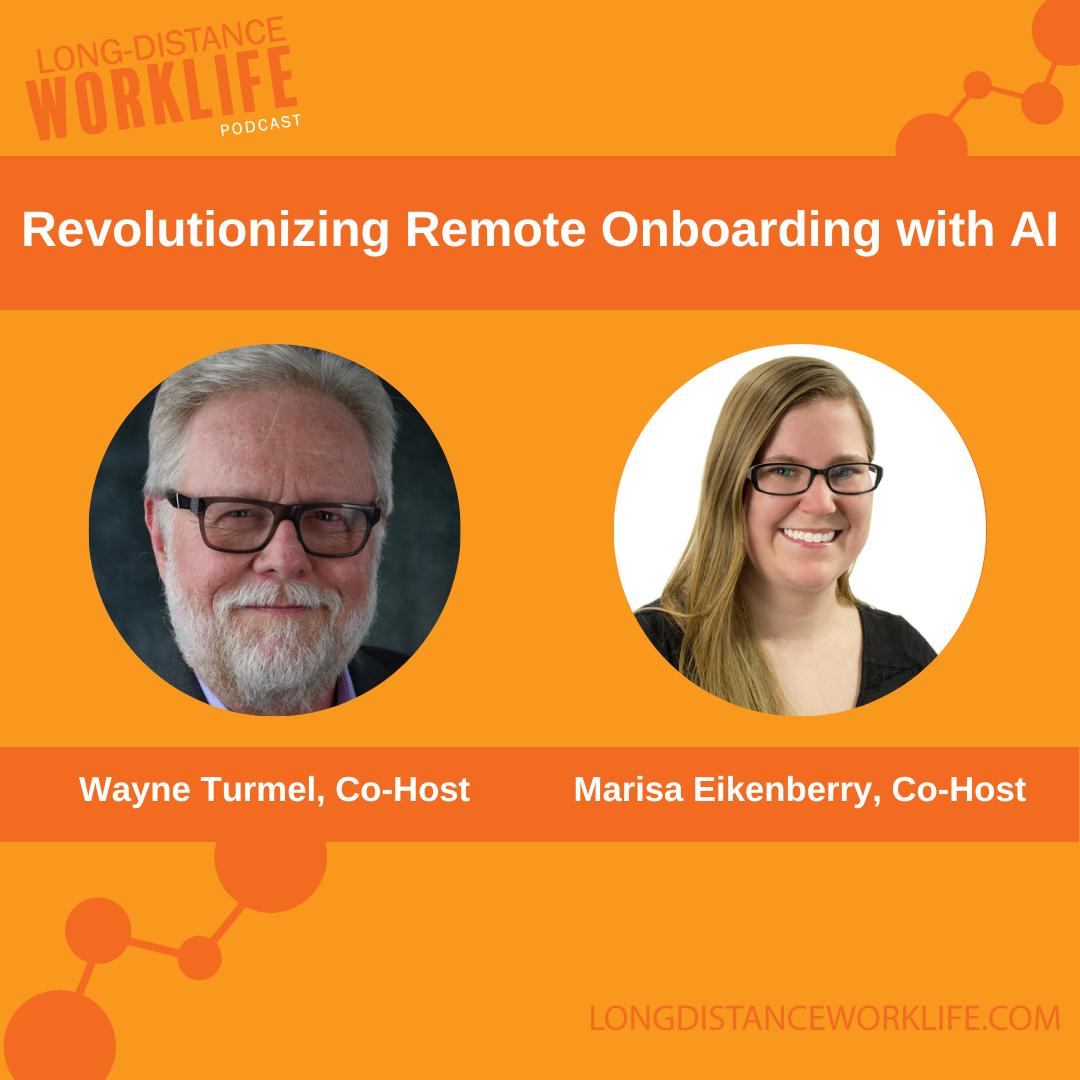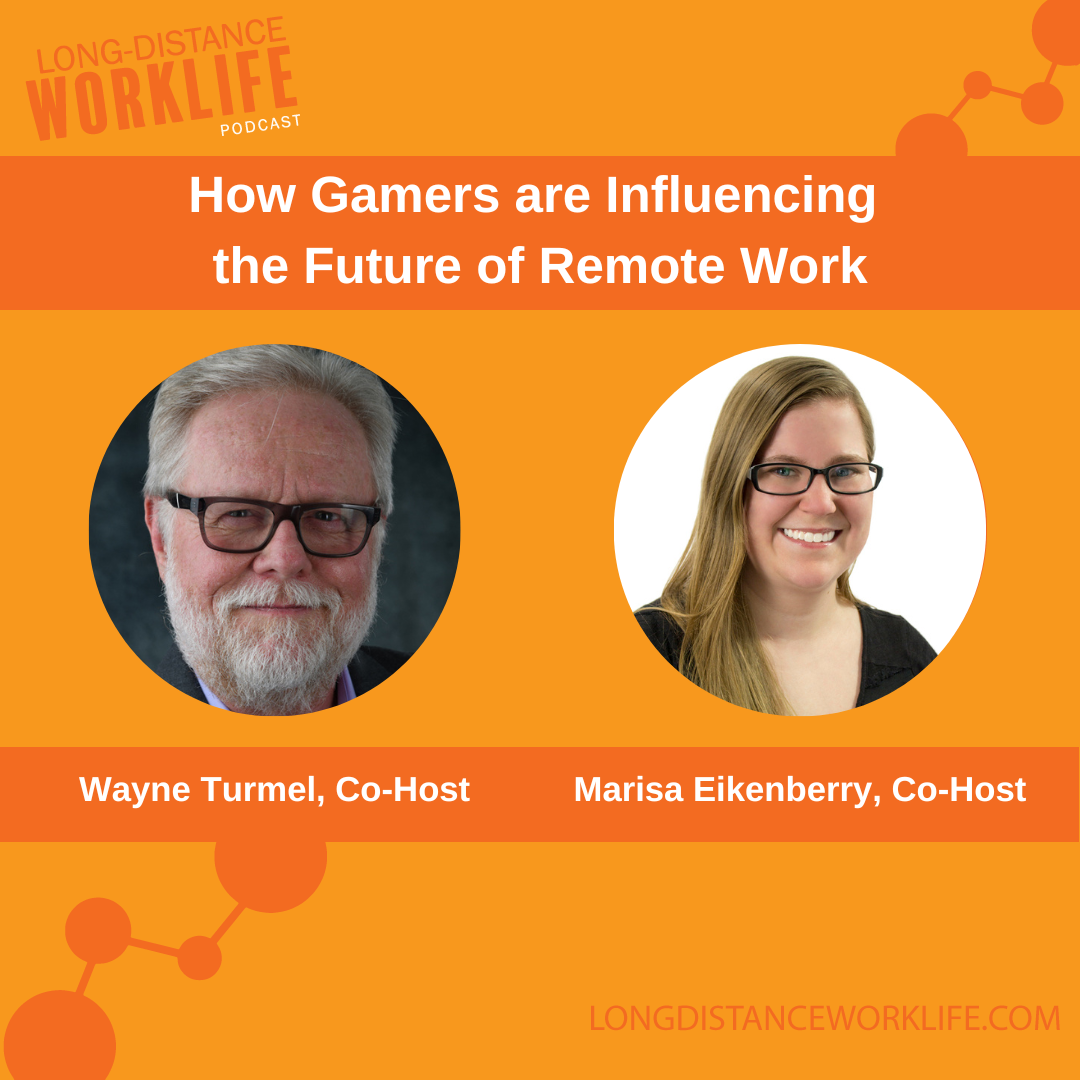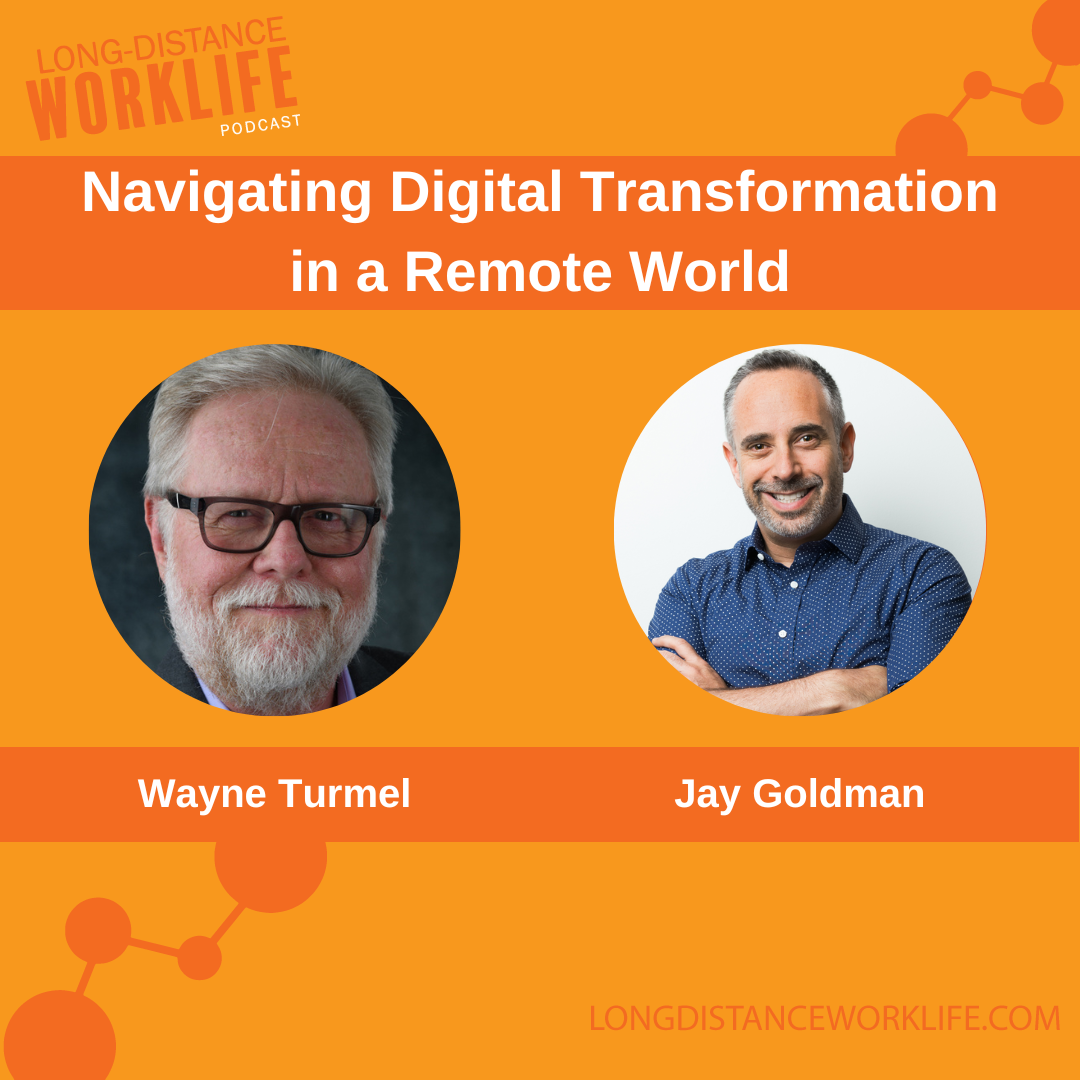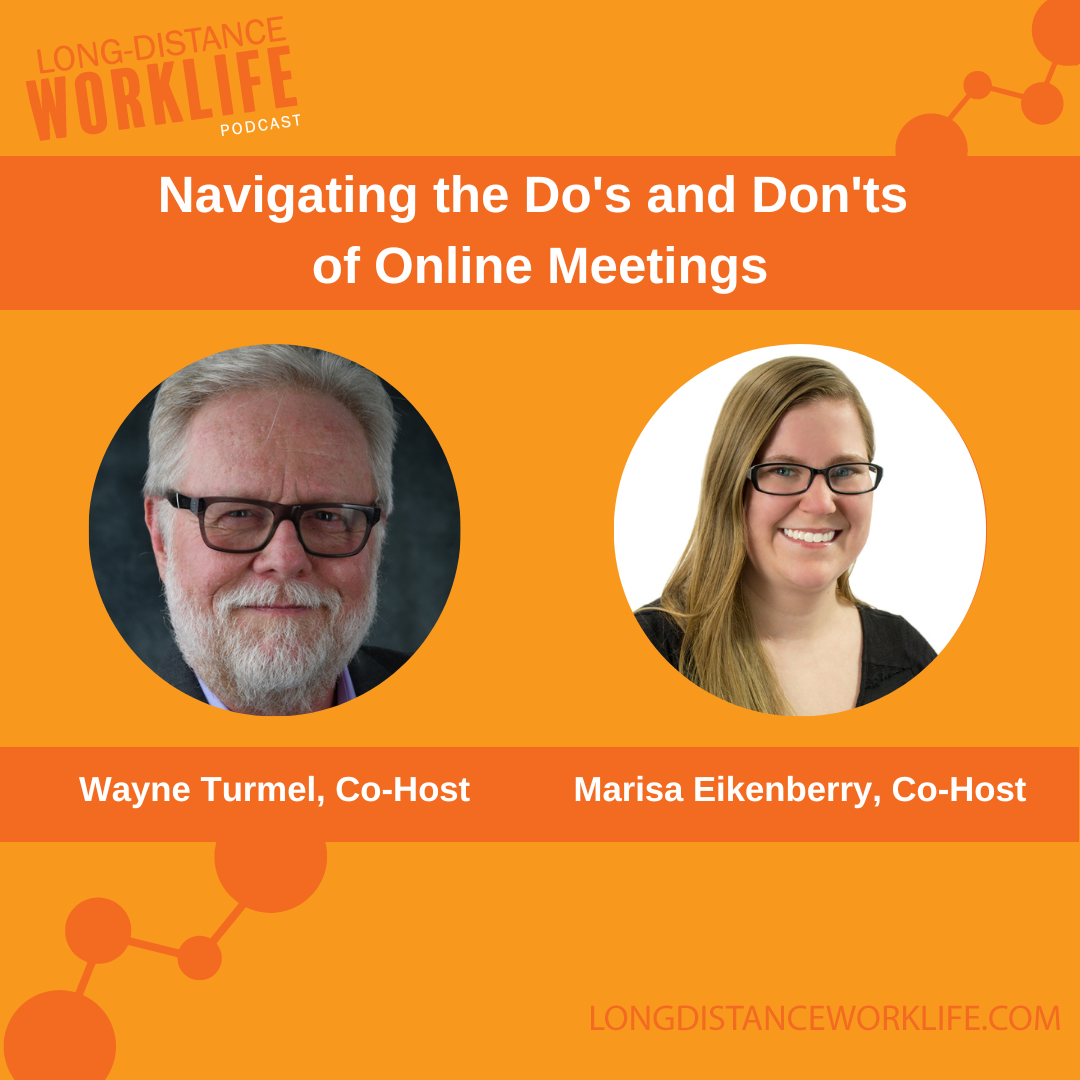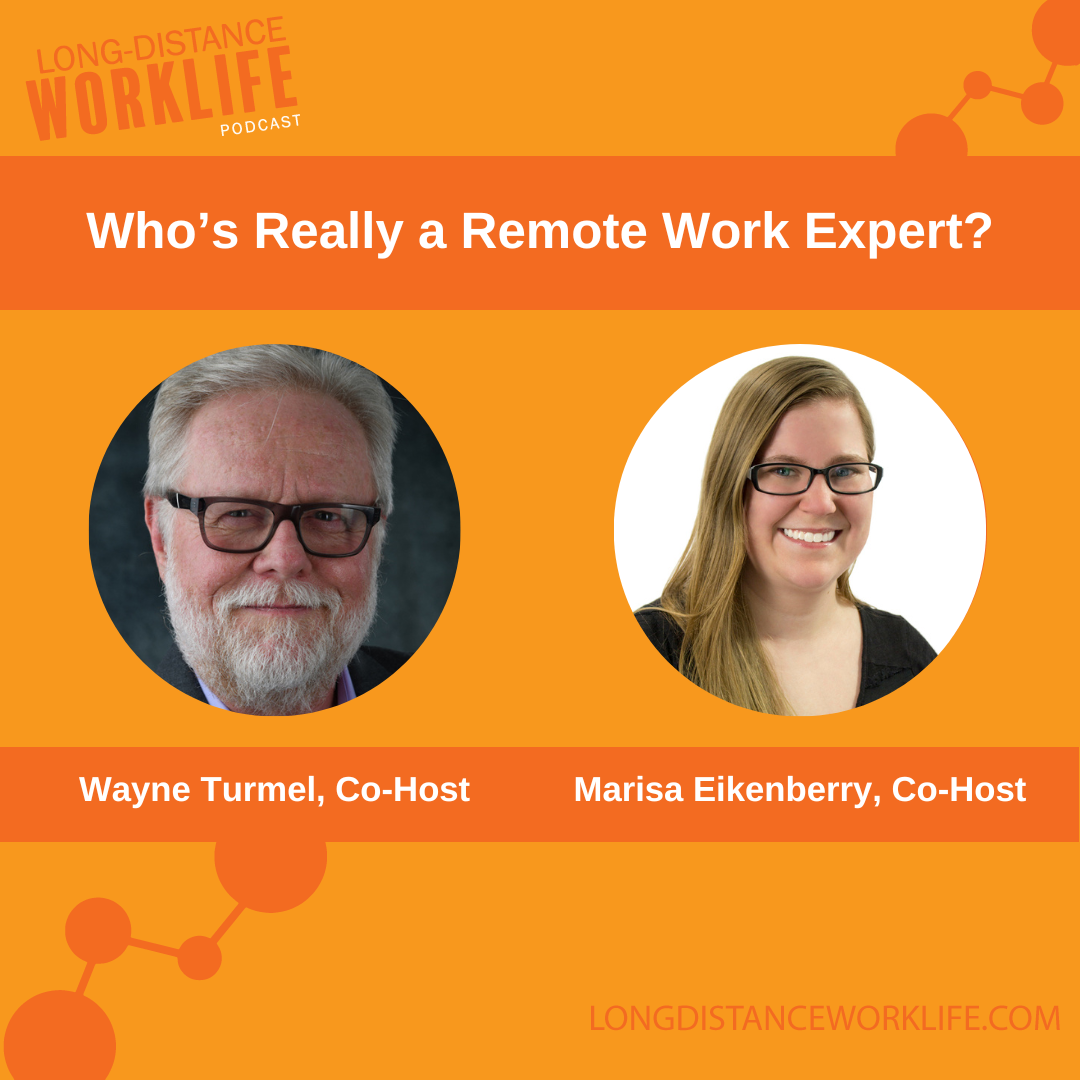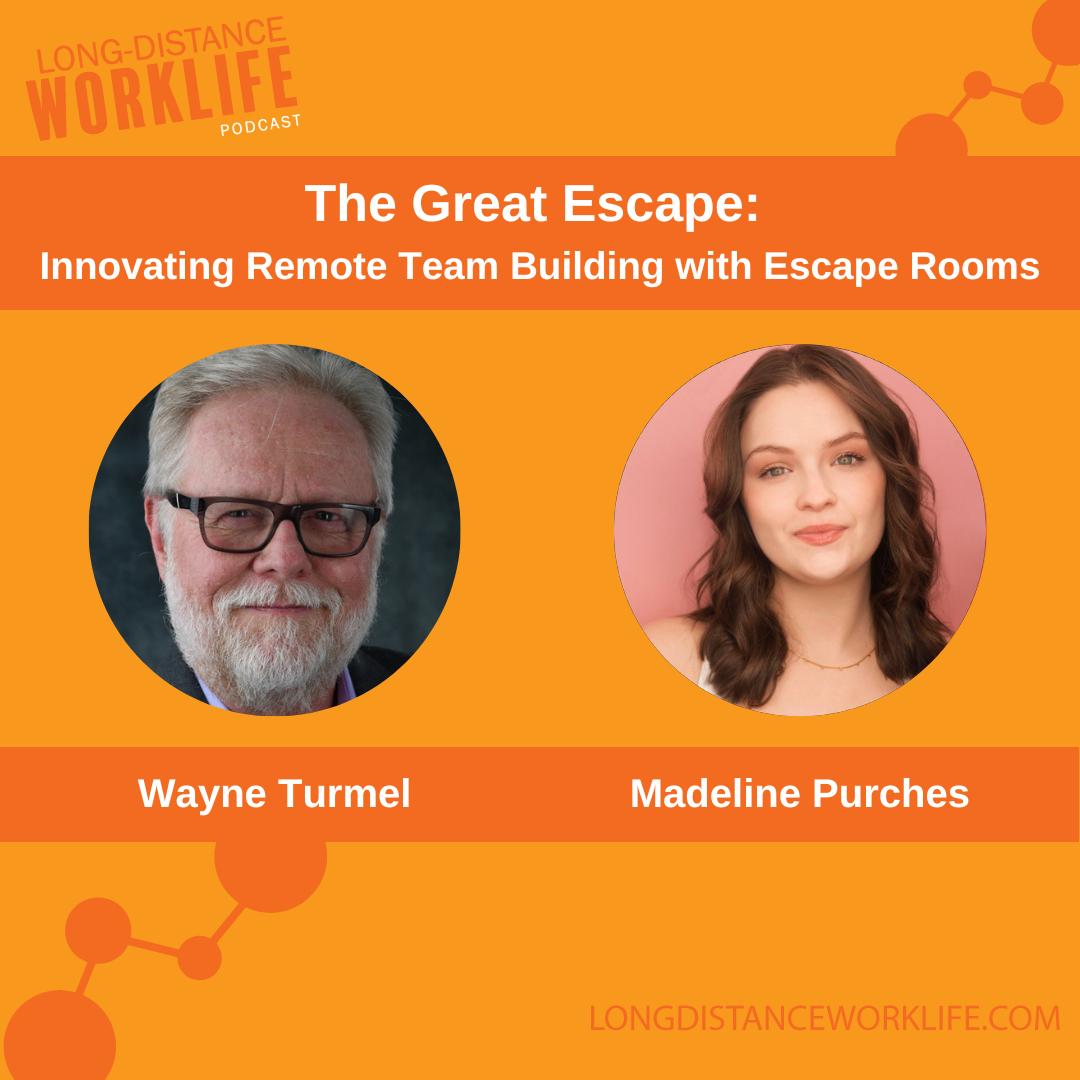Are screens taking over your life? In this episode of The Long-Distance Worklife, hosts Marisa Eikenberry and Wayne Turmel dive into the growing issue of screen fatigue and explore how remote workers can break free from digital overload. Learn about the physical and mental toll of excessive screen time, why our brains crave those dopamine hits, and how to set boundaries for healthier habits. From practical tips like setting screen-free zones to embracing old-school tools (hello, paper planners!), this conversation is packed with actionable strategies to help you reclaim balance in your remote work life.
Key Takeaways
1. Define Screen Fatigue: Recognize that screen fatigue involves both physical strain (eye fatigue, disrupted sleep from blue light) and mental exhaustion from constant input and dopamine-driven habits.
2. Set Clear Screen Break Goals: Decide specific times or durations for breaks, such as “no screens for 15 minutes,” instead of vague promises like “less screen time.”
3. Create Screen-Free Zones: Establish boundaries like no screens at the dinner table, during family time, or in the bedroom to reinforce healthy habits.
4. Limit Notifications: Turn off unnecessary alerts to reduce distractions and the urge to check your devices. Fewer dings mean less stress and temptation.
5. Reduce Blue Light Exposure: Use tools like night mode on devices, dim lighting, or e-ink screens to minimize eye strain, especially in the evening.
6. Incorporate Offline Activities: Replace screen time with activities like reading paper books, going for walks, or engaging in chores to refresh your mind and body.
7. Practice Intentional Device Use: Avoid using screens as your default downtime activity. Try alternatives like music or silent walks to give your brain a genuine rest.
8. No Screens Before Bedtime: Commit to at least 30 minutes of screen-free time before sleeping to help your brain wind down and improve sleep quality.
9. Use Technology Wisely: If you rely on tech (like a Kindle), explore settings to reduce blue light and adjust brightness for less strain during necessary use.
10. Develop New Habits Gradually: Don’t go “cold turkey.” Instead, build sustainable habits over time by integrating small changes consistently into your routine.
00;00;07;29 - 00;00;29;18
Speaker 1
Do you ever feel like screens are running your life? The constant thing. Back to back meetings and endless hours. Staring at a screen can leave you drained and unfocused. But what if you could take back control of your day? Welcome back to Long Distance Worklife, where we help you lead, work and thrive in remote and hybrid teams. I'm Marisa Eikenberry, fellow remote worker, and as always, joining me is my co-host, Wayne Turmel.
00;00;29;23 - 00;00;32;03
Speaker 2
That would be me. Hi. How are you?
00;00;32;05 - 00;00;34;19
Speaker 1
I'm great. How are you?
00;00;34;22 - 00;00;40;14
Speaker 2
I'm. Well, it's, It's good. It's. We're heading into the holiday season as we record this.
00;00;40;16 - 00;00;44;16
Speaker 1
Right. And I think it'll be January when it comes out, so.
00;00;44;18 - 00;00;52;19
Speaker 2
So everybody in a fetal position, after having survived. Horrible for.
00;00;52;21 - 00;00;52;29
Speaker 1
My.
00;00;53;03 - 00;01;01;28
Speaker 2
Okay. Yeah. Well, the only way you're going to be refreshed is if you actually get downtime. Which leads us to right.
00;01;02;01 - 00;01;22;17
Speaker 1
Yeah. Today we're actually going to talk about screen fatigue and digital detoxing and what it is and how you can break free from the cycle to feel more balanced in your remote work life, which is something we would all aspire to have. So, Wayne, why don't we just start off with the basic definition of what is screen fatigue?
00;01;22;23 - 00;01;25;10
Speaker 1
How does it manifest to remote work settings?
00;01;25;12 - 00;01;58;16
Speaker 2
Well, screen fatigue is actually a couple of things. But it basically means we're on screens all the time. And, you know, I'm you're on your phone, you're checking your phone, and then you're staring at a computer monitor, and then you take a break by going downstairs and watching TV, which is basically a larger computer monitor. And then you say, oh, I'm going to go read a book, but it happens to be on a Kindle or a tablet, which is yet another screen.
00;01;58;20 - 00;02;40;01
Speaker 2
Right? And so there are a couple of challenges there. One is physical, staring into a screen all that time. It's not only bad for your eyes, but it is physically draining the blue light that emanates from those screens has actual physical effects on the human body, which we will talk about. The other thing is you're constantly taking in information and input, and if you don't give your brain a break, it becomes mentally and physically exhausting.
00;02;40;04 - 00;02;54;05
Speaker 1
Right? You might actually get kind of, irritable or I know if I've been looking at screens a lot and I've been doing a lot of especially like research or something like I kind of a jerk if I don't, I have a brain.
00;02;54;07 - 00;03;05;15
Speaker 2
And, you know, I mean, for some of us for whom curmudgeon is our default setting, it might be less noticeable. But when Marissa's in a bad mood, the world notices. You're saying.
00;03;05;17 - 00;03;08;10
Speaker 1
Wow.
00;03;08;13 - 00;03;27;17
Speaker 2
So so the fact is that there is this constant bombardment and barrage and intake. And at some point, the only way it's not like, well, I'm going to watch YouTube videos on my phone instead of staring at spreadsheets. Your brain doesn't care.
00;03;27;19 - 00;03;27;28
Speaker 1
Yeah.
00;03;27;28 - 00;03;56;13
Speaker 2
What the content is. It's the actual interaction of your eyes and your scrolling finger and your brain with a screen period. Which leads to this notion of a digital detox. And a lot of people kind of take a detox. Well it's not like it's an addiction. It's not alcohol. It's that. But in fact call it what you want.
00;03;56;15 - 00;04;14;04
Speaker 2
It has all the earmarks of an addiction when it goes away your brain responds dopamine neuron receptors. All that good stuff responds in the same way as any bad habit.
00;04;14;06 - 00;04;23;03
Speaker 1
Right, right. Well, I wake up in the morning, you grab your phone. Like what? What are the screens that you gravitate towards without even thinking about it?
00;04;23;05 - 00;04;35;22
Speaker 2
Yeah. It's funny. They have done studies these and found that Farmville, you know, sets off the same dopamine receptors in your brain as cocaine.
00;04;35;24 - 00;04;40;04
Speaker 1
Wow. That is a game I heard about a lot.
00;04;40;06 - 00;04;42;15
Speaker 2
But that's it's changing so quickly.
00;04;42;15 - 00;04;43;10
Speaker 1
Yeah.
00;04;43;12 - 00;04;53;23
Speaker 2
But Farmville was one of the first where they gamified something 200 points that it actually became addictive. And then, you know, it was Angry Birds and.
00;04;54;00 - 00;04;55;09
Speaker 1
And Candy crush that.
00;04;55;09 - 00;05;05;13
Speaker 2
Yeah. And somehow I have avoided all of those and yet I will twittered doom scroll for hours.
00;05;05;15 - 00;05;09;05
Speaker 1
Right. Well, I'm on this tick tock now. Right. Like you know well.
00;05;09;07 - 00;05;31;23
Speaker 2
And they're all I do not blame the poor coders who are doing this because they are doing what they are requested to do. But the fact of the matter is that all these sites are designed to be addictive. They're designed to play with the pleasure centers of your brain. And let's assume for a moment that you are a superior being.
00;05;31;25 - 00;05;52;03
Speaker 2
And you, I do not fall prey to this. I use my screens for work and other noble purposes. Okay? The fact of the matter is, when you hit send on an email, there is a ping in your brain that goes, yeah, I did something. What else can I do? Oh look, there's another one.
00;05;52;05 - 00;05;53;14
Speaker 1
00;05;53;16 - 00;06;20;05
Speaker 2
And you know this is all not terribly scientific. And yet we know it to be true. So the dopamine and reward systems and the feedback loops from screens are a big part of the problem. That's why every time we say I'm just going to put my phone away and I'm not going to look at it and it's in your hand before you know it.
00;06;20;08 - 00;06;38;18
Speaker 1
Oh yeah. Well, it's why there's that whole thing of, you know, if your phone is your alarm, either a stop or be like, put it in another room, but loud enough, you could still hear it because there's so many people. And I will say, I am also one of these people. This is not, you know, I am one of you.
00;06;38;25 - 00;06;55;26
Speaker 1
But, but like you wake up in the morning and the first thing you do is reach for your phone. And so it's like, if it's not there, you have to physically get up and go get it. Well, now you're already up. Go do something else. Is a bed rotting while watching TikToks? Not that I did that this morning or anything.
00;06;55;28 - 00;07;10;00
Speaker 2
Well, it's funny, one of the people ways that people are breaking this is going back to the future. Everybody remembers those horrible, ugly brown, radio alarm clocks I've.
00;07;10;00 - 00;07;11;25
Speaker 1
Pretty sure my dad still has.
00;07;11;25 - 00;07;39;23
Speaker 2
One side. You're bad. Right? Yes. Well, but here's the thing. That is actually better than your phone for keeping time. Because it's red light. It's not the blue light up your screen every time you pick up your phone and look at it, blue light hits your eyes and your brain, and it messes with your sleep patterns. Where as the red light so is well, I use this as my alarm clock.
00;07;39;26 - 00;07;42;04
Speaker 2
You know, there are alarm clocks, right?
00;07;42;07 - 00;07;48;15
Speaker 1
Correct. Or even, you know, whether you wear apple Watches or whatever, you can have it there too.
00;07;48;17 - 00;08;01;15
Speaker 2
Yeah, but even your Apple Watch emits a blue spectrum light. So I have an actual alarm clock, and then you don't have to have your phone by the bed.
00;08;01;18 - 00;08;02;21
Speaker 1
Very true.
00;08;02;24 - 00;08;24;26
Speaker 2
If it's not by the bed, there's less chance you're going to automatically reach for it. So that's the reason for it. That's the reason we need a digital detox. But it's not that easy because it's the ubiquity of the screen. Like I say, I'm going to stop work for the day, right? What am I going to do?
00;08;25;01 - 00;08;37;19
Speaker 2
I think I'll watch some YouTube videos. Well, that's the same problem, right? Well, staring at the same screen, maybe even the same device. And it's not helping.
00;08;37;21 - 00;08;55;15
Speaker 1
Well, and especially with remote workers too, it's like, you know, if you were in the office, you're in front of your screen, you're doing your thing. Oh, okay. I'm going to go meet with the marketing department. You physically get up and go to a conference room, or you go to a table and you're no longer on your screen because now you're face to face, that doesn't happen anymore.
00;08;55;22 - 00;09;15;09
Speaker 1
So now you're going from, I'm doing all this email and I'm doing all the stuff, and now I'm on zoom, and now I'm having meetings for zoom, and I'm talking to people on slack that I wouldn't have spoken to like that if they were in the office. And there's almost this extended screen time that would not have necessarily happened if we were still in the office.
00;09;15;12 - 00;09;48;10
Speaker 2
Right. And that goes on all day. And then our leisure activities take place on screens. Right? So part of it is what needs to be done. What do we actually need to do. And we've talked about this 100 times on this show about removing the alerts and having a start and an end to your day where you are no longer doing work stuff.
00;09;48;12 - 00;09;50;07
Speaker 1
Well, even break start to.
00;09;50;09 - 00;09;57;02
Speaker 2
Break and taking breaks during the day. But then those breaks can not include other screens.
00;09;57;04 - 00;10;03;18
Speaker 1
100%. Like if you're going to go have lunch, go have lunch and like that's it.
00;10;03;20 - 00;10;29;04
Speaker 2
But some of this is we have four strategies around this, right? We decide, oh, you know we're going to go cold turkey. Well no you're not. Yeah. You are not going to go cold turkey. It doesn't work that way. Your brain is going to torture you and you will eventually crumble and collapse. So how do we overcome this stuff?
00;10;29;04 - 00;10;49;00
Speaker 2
Well, first of all, you need to set clear goals. Why do I need a break? What kind of break do I want? How long a break am I going to take? That kind of thing, right. Because if you say, well, I'm just not going to look at my phone for a while, your brain is going, how long is a while?
00;10;49;04 - 00;10;51;25
Speaker 2
Oh, my God, we might be missing out on something. Yeah.
00;10;51;28 - 00;10;54;18
Speaker 1
No. So it's right there. I could see it.
00;10;54;20 - 00;10;59;07
Speaker 2
Whereas I'm not going to look at my screen for 15 minutes.
00;10;59;10 - 00;11;01;01
Speaker 1
00;11;01;03 - 00;11;16;25
Speaker 2
You might get a little twitchy, but at some point your brain goes it's only 15 minutes and then you will get back to the sweet embrace of the blue light broke. Go off right.
00;11;16;28 - 00;11;30;02
Speaker 2
Having no screen times, areas, you know, the dinner table, no phones at the table.
00;11;30;04 - 00;11;38;00
Speaker 2
I can't tell you how many parents I see in restaurants tell their kids no phones at the table. And yet they're constantly doing this.
00;11;38;02 - 00;11;40;14
Speaker 1
Oh 100% you know.
00;11;40;16 - 00;11;49;05
Speaker 2
So we need to walk it like we talking and having everybody is miserable as you. It's not a bad thing.
00;11;49;07 - 00;12;10;14
Speaker 1
Well and only because, you know the generation that I'm in this whole concept that these darn kids and their darn phones. I'm not saying that we're not on technology all the time. Not saying that. I also tell you, I see more boomers attached to their phones sometimes in certain situations. No offense to you, because that's not the cause.
00;12;10;14 - 00;12;20;10
Speaker 2
We use the phone to expand so we can actually read the menu and probably using it as a hearing aid. So there may be there may be medical reasons. Okay. Smart.
00;12;20;12 - 00;12;31;11
Speaker 1
Like I'm just saying I do see that constantly where it's just like these darn kids and I'm like, my phone's in my purse in another room. You're playing Candy crush while we're talking.
00;12;31;13 - 00;12;44;14
Speaker 2
Yeah, but the idea of a no screen zone or a blue Gatorade, no screen times is a really good and frankly, important way to do.
00;12;44;17 - 00;12;45;08
Speaker 1
Right, to.
00;12;45;10 - 00;12;57;14
Speaker 2
Start to break that habit. And there are alternatives. You know, I don't know if you know, this books used to come on paper and maybe.
00;12;57;15 - 00;13;00;15
Speaker 1
You can use both because I know, I.
00;13;00;19 - 00;13;13;08
Speaker 2
Know because if you're doing both, you're looking at the screen. What I'm saying is if you're going to use reading as a break, activate right. Use a non electronic form.
00;13;13;08 - 00;13;16;19
Speaker 1
It okay.
00;13;16;22 - 00;13;19;14
Speaker 2
Yes I know but your listen I know.
00;13;19;14 - 00;13;44;24
Speaker 1
I have other tech things but I'm not even going to go there because like I mean okay actually no no I'm going to do it. If you have to use a piece of technology for something, Kindle phone, whatever, they're usually are some sort of setting that you can set to reduce the blue light during certain times that automatically kicks in.
00;13;44;26 - 00;14;06;17
Speaker 1
I'm a Kindle reader. I do also read physical books. You know, those of you that are watching can see them behind me. They're constantly they're. But when I have my Kindle on at night, it's on a, you know, lower level, it's on more red light than blue light. It's dimmer. People who have the Kindle Paperwhite, it's the e-ink.
00;14;06;17 - 00;14;25;00
Speaker 1
So it's actually better for your eyes anyway. Like, there's all of these different things that if you if you feel like you need to be on a piece of technology, there are some ways to help, combat some of these eyestrain and other issues in general.
00;14;25;03 - 00;14;36;28
Speaker 2
And there are certain things that just make sense, not only for the blue light, but for the mental stimulation. No screens a half hour before you go to bed.
00;14;37;01 - 00;14;37;26
Speaker 1
00;14;37;29 - 00;15;00;16
Speaker 2
And I realize everybody just got really twitchy because most of our routines is we watch TV until it's time to go to bed. Some people go to bed to turn on the TV and watch some more before it's time to go to bed. At the very least, the ones that are right in front of your face, radiating directly into your brain.
00;15;00;19 - 00;15;30;09
Speaker 2
No phones for a half hour before bedtime, right? Put down your non Paperwhite, Kindle and give yourself a break. You know that's when you brush your teeth and do your ablutions and whatever you need to do before you go to bed, kill the screens and then do your bed routine and your brain will more easily adjust to that.
00;15;30;11 - 00;15;53;22
Speaker 1
Right. Well, and you were talking about, you know, less notifications or no notifications earlier to. With by doing that we will theoretically pick up our phone less anyway because you're not going to have the dings that you're used to. Which let's get real, it's a Pavlov's, you know, dog situation. We hear the ding. And so we pick it up.
00;15;53;24 - 00;16;11;02
Speaker 2
And the lack of a day, I mean, there is nothing there. And my thing is my phone is on vibrate or silent 90% of the time. But then I go, I wonder if anybody's called. Right. So there's so there's that.
00;16;11;04 - 00;16;13;05
Speaker 1
Yeah.
00;16;13;07 - 00;16;18;17
Speaker 2
Here's the other thing, though. Don't take your phone when you walk the dog.
00;16;18;19 - 00;16;19;20
Speaker 1
00;16;19;22 - 00;16;42;22
Speaker 2
Get outside when you're doing chores, put on music, do something else. Give your brain, your eyes, your entire physical and actual brain. It's weird to think that doing dishes and emptying the dishwasher and throwing a load in laundry could be a break, but it actually is in many ways.
00;16;42;25 - 00;17;09;05
Speaker 1
Well, and it's funny that you say some of that too. So, there it's been a while since I've seen it, but there was a thing for a while on TikTok where they were, I think they had another word for it, but there were multiple at the time. But this idea of, you know, go on silent walks and it was like a brand new concept for, you know, Gen Z or younger millennials because that's just not what we do.
00;17;09;05 - 00;17;16;11
Speaker 1
And, you know, even as we're talking, it's like, yeah, go, go on a walk without anything, like just listen to the nature.
00;17;16;14 - 00;17;37;26
Speaker 2
It's I can't remember the last time I went for a walk with earphones. And now some of this is I don't have music on my phone, so there's no there's no way to put brain music. But I find if I'm walking the dog or I'm going for a walk and I don't have earbuds in.
00;17;37;28 - 00;17;38;26
Speaker 1
00;17;38;29 - 00;17;48;08
Speaker 2
I hear things, I relax, I get to spy on the neighbors because I overhear conversations. It's really cool.
00;17;48;10 - 00;17;49;00
Speaker 1
Right.
00;17;49;03 - 00;17;58;02
Speaker 2
But yeah, I, I have quit plugging earphones in when I go for walks. For exactly that reason.
00;17;58;04 - 00;18;02;28
Speaker 1
Yeah. It's just crazy to me. I think it's like a new new phenomenon.
00;18;03;00 - 00;18;33;15
Speaker 2
Listen to your Uncle Wayne. Leave the earbuds. Oh. And, and you got to develop these habits the first time you do it, it's going to be weird. And you're going to not know what to do with yourself. And it takes multiple times of doing something for it to become a habit. And it's important we are. It's funny, we are doing less physical labor than ever before.
00;18;33;15 - 00;19;11;11
Speaker 2
For the most part, human beings work less and our health is impacted by our work. Being seated all the time, being sedentary can't stand exposure to screens. Yes, it's not tarring roofs in the hot sun and it's not, you know, hauling wheelbarrows full of stuff, which is incredibly taxing on the body. But there is, of course, to the way we're working, and especially as we get to the time of year when people do New Year's resolutions, which I try to avoid.
00;19;11;14 - 00;19;32;00
Speaker 2
But if you're doing New Year's resolutions, this is a really good one. Yeah, if you're worried about your health and you're trying to get healthier, this can actually play a really big part in it. And that means don't put your exercise plans solely on your phone.
00;19;32;02 - 00;19;34;28
Speaker 1
Yes.
00;19;35;01 - 00;19;35;10
Speaker 2
It did.
00;19;35;12 - 00;19;38;15
Speaker 1
Print it out. It's okay.
00;19;38;18 - 00;19;42;26
Speaker 2
So here's the thing. Yeah, go old school. You know.
00;19;42;29 - 00;19;45;25
Speaker 1
Paper planner.
00;19;45;27 - 00;20;10;06
Speaker 2
Whatever, by any means necessary. Here's the deal. As we come to the end of the year, whenever you're listening to this, get some rest, take a break, catch up on your sleep, do what you need to do. Nobody else is going to do it for you. Your boss may pay great lip service, and may even mean that they want you to take a break.
00;20;10;08 - 00;20;15;21
Speaker 2
But when you're on the screen answering that email at 10:00 at night, they're not stopping you either.
00;20;15;23 - 00;20;17;10
Speaker 1
Right?
00;20;17;13 - 00;20;28;03
Speaker 2
Right. And it's not that they're evil, horrible, exploitative people. And even if they are, you still can control what you can control. All right.
00;20;28;06 - 00;20;52;09
Speaker 1
Well, Wayne, thank you so much for this episode. I hope that it's helpful to the people who are listening. And before we go, we're excited to share that the second edition of The Long Distance Leader is now available. So those of you who are starting your New Year's resolutions or thinking about things for this year, you might want to pick up this book because it is packed with actionable strategies to help you lead effectively in today's remote and hybrid environments.
00;20;52;11 - 00;21;16;25
Speaker 1
Don't wait. Order your copy at long distance work life.com/ldl and take your leadership skills to the next level. And thank you so much for listening to Long Distance Worklife for Shownotes transcripts and other resources. Make sure to visit Long Distance worklife.com if you enjoyed this episode, don't forget to subscribe so you never miss a future one. And while you're at it, leave us a rating or review on Apple or Spotify.
00;21;16;28 - 00;21;33;22
Speaker 1
It's quick and it helps us reach even more listeners. Just like you. We would also love to hear from you. Reach out to us via email or LinkedIn using the links in our show notes. Let us know that you listen to this episode, or even suggest a topic for Wayne and I to tackle in a future episode. We would love to hear from you.
00;21;33;25 - 00;21;38;21
Speaker 1
And finally, as mine likes to say, don't let the whistles get you down. Hey!
Timestamps
0:00 Introduction
0:30 What Is Screen Fatigue?
1:25 The Physical and Mental Impacts of Screen Time
7:00 Digital Detox Strategies
10:30 Setting Boundaries with Screens
13:45 Blue Light and Notification Hacks
15:35 Enjoying Offline Activities
20:10 Conclusion
Related Episodes
Additional Resources
- Learn more about Wayne Turmel
- Email Wayne Turmel
- Connect with Wayne Turmel on LinkedIn
- Learn more about Marisa Eikenberry
- Email Marisa Eikenberry
- Connect with Marisa Eikenberry on LinkedIn
- Purchase a copy of The Long-Distance Leader
- Purchase a copy of The Long-Distance Teammate
- Purchase a copy of The Long-Distance Team
- The Kevin Eikenberry Group
Order The Long-Distance Leader
Perfect your remote leadership skills with the updated edition of "The Long-Distance Leader" by Kevin Eikenberry and Wayne Turmel, featuring new principles and proven strategies for today's hybrid work environments.
